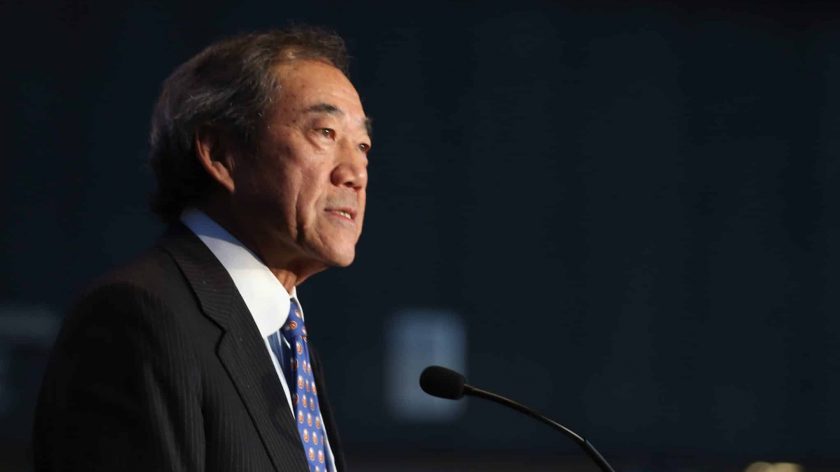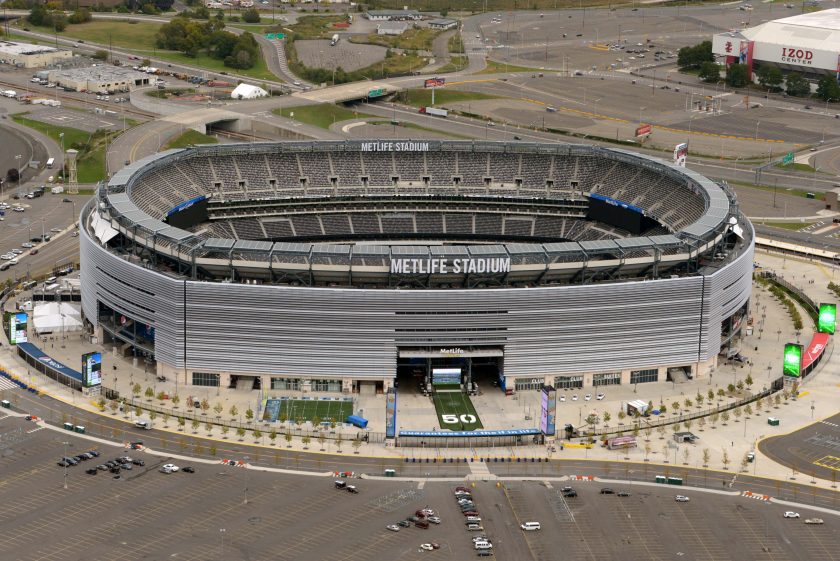New York Islanders: Remembering Charles Wang’s Long Island legacy

Charles Wang, Long Island philanthropist and minority owner of the New York Islanders, passed away at 74-years-old on Sunday morning.
[sc name=”Matt Di Giacomo Banner”] [dropcap]I[/dropcap]n April of 2000, Charles Wang saw his first live hockey game and made the $190 million decision to purchase the New York Islanders during one of the darkest chapters in team history.At the time, Wang told Richard Sandomir of the New York Times:
”We want to make the New York Islanders the world-class sports franchise that our community deserves, wants and needs,” Wang, 55, said. ”This is no easy task. We are not medicine men promising a very quick cure.”
It’s true, Wang’s tenure as Islanders majority owner was full of struggle, hardship and bottom-five draft picks. However, what most fans can — and should — remember him for is his unwavering investment to not just the team, but all of Long Island.
Wang’s fingerprints can be found all over, from the inception of Smile Train in 1999 which provided more than one million free cleft surgeries for children, to establishing the ongoing New York Islanders Children’s Foundation in 2001.
Scott Rechler, both a friend and former development partner highlighted this impacting loss to the Long Island community when speaking to David Winzelberg of Long Island Business News:
“Charles loved Long Island and was always working to make it a stronger place from building CA’s headquarters here to fighting to keep the Islanders here. He touched so many Long Islanders in so many ways. While Charles is sadly gone, his fingerprints will always be on Long Island. My thoughts and prayers go out to his family.”
Wang was born in Shanghai, China before both he and his family moved to Queens at age eight. Both Wang and Russell Artz founded Computer Associates in 1976 after graduating from Queens College and served as the company’s chairman until purchasing the Islanders in 2000.
In 2002, Wang built and donated the $40 million Charles B. Wang Center at Stony Brook University to celebrate Asian and American cultures.
Heavy opposition met Wang’s Lighthouse Project in 2011 with Wang’s ultimate goal being the renovation of Nassau Coliseum. Surrounding a renovated Coliseum would have been houses, offices, restaurants, and various retail locations in addition to an athletic complex, conference and exhibition facilities, and a minor league baseball park.
Though the project would be vetoed by residents, Wang had poured everything into keeping the team on Long Island. Year after year, reports of Wang’s fiscal distress would leak their way into the public eye. In 2009, it was reported by the Associated Press that Wang was spending an average of $23 million annually to keep the team operating.
NHL deputy commissioner Bill Daly verified Wang’s struggles to the Associated Press:
“His numbers are real,” NHL deputy commissioner Bill Daly told Newsday. “Yes, we’re aware the Islanders lose money, a significant amount of money. And it goes back to the team’s need for a new arena.”
Wang’s frustration with the inability to get his Lighthouse project off the ground was burning a hole in his deep pockets. Through the 16 years he stayed on as majority owner of the Islanders, the goal was always the same — keep the Islanders at home.
In 2015, Wang made a deal with Brooklyn Sports & Entertainment that would allow the Islanders to remain in the New York market by playing at the Barclays Center. Wang became a minority owner of the Islanders in 2016 after selling majority ownership to Jon Ledecky and Scott Malkin.
Now, more than ever, Charles Wang’s commitment to Long Island should not be in doubt. Though things never panned out as many hoped, Wang’s passing of the torch to new ownership was his final act in preserving the Islanders legacy and firmly keeping Long Island’s team right at home where they belong.
Charles Wang will go down as a hero of Long Island, and the person who laid the groundwork that brought the Islanders to their future home at Belmont Park for generations to come.
[sc name=”Islanders Link Next” link=”https://elitesportsny.com/2018/10/20/new-york-islanders-depth-scoring-rout-puts-pressure-on-top-6/” text=”New York Islanders Depth Puts Pressure on Their Big Guns” ] [sc name=”Islanders Footer”]Grew up a diehard Islanders and Mets fan based out of Northern New Jersey.
Concluding my Broadcast Communications degree at William Paterson University. WP Sportsdesk member, Stan Fischler correspondent, music buff and total Star Wars freak. Follow my social media handles to learn more.
Matt Di Giacomo is a Staff Writer for the Islanders on Elite Sports NY. He encourages team discussion. Tweet him @mdigiacESNY and check out his reviews on YouTube.






